Tens of thousands of Armenians flooded the streets of Yerevan in April, demanding the resignation of then–Prime Minister Serj Sargsyan. He’d just served two terms as the president, during which he and his parliamentary allies changed the constitution to make Armenia a parliamentary system. The move was widely seen as a power grab and sparked massive demonstrations. Sargsyan stepped down after 11 days of protests, and days later, opposition leader Nikol Pashinyan, a charismatic former journalist, was sworn in as the new prime minister.
Richard Giragosian, a political analyst at a Yerevan-based think tank, spoke with Anthony Bourdain last fall about Armenian history and the lasting effects of the 1915 genocide—a characterization Turkey denies to this day. Explore Parts Unknown’s Danielle Renwick caught up with Giragosian in the days after Armenia’s “Velvet Revolution.”
Danielle Renwick: Were these protests a long time coming, or were you taken by surprise?
Richard Giragosian: It was a genuinely unexpected development. We saw tens of thousands of demonstrators protesting an arrogance of power. The decision by the former president to suddenly become prime minister after changing the Constitution was too much for the ordinary citizen.
This alone would not have been enough, but for the emergence of a key pivotal opposition leader, Nikol Pashinyan, who was able to mobilize and galvanize growing demonstrations, forcing Sargsyan’s resignation.
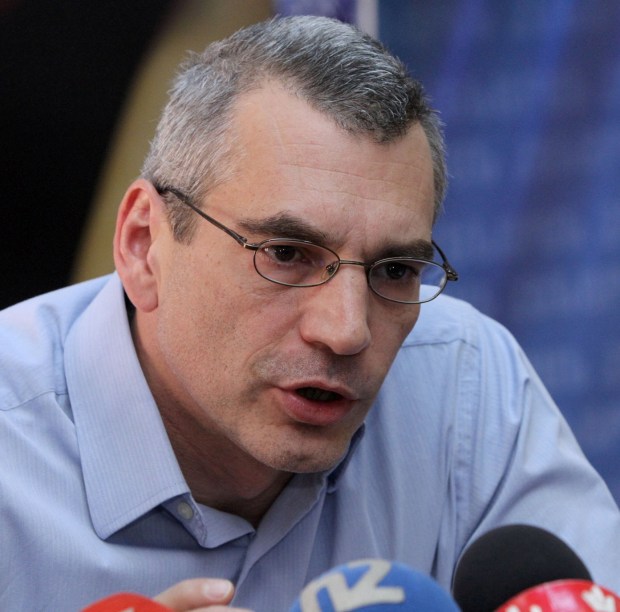
Renwick: Did the protesters have other grievances?
Giragosian: The president turning into the prime minister was a trigger. But what set this off was the fact that the former government dangerously underestimated popular demands for change. It’s been many years since Armenia has had a free and fair election.
There was an accumulation of discontent that was seriously ignored by the previous ruling elite. It was the combination of that political vulnerability, an economic crisis, and the emergence of a new generation that is demanding a say in the future of their country.
Renwick: There haven’t been free and fair elections?
Giragosian: Armenia is a post-Soviet country, and like many of the post-Soviet countries, its last free and fair election was actually its first election in the early ’90s. Since then, we’ve seen the emergence of entrenched corruption and presidential and parliamentary elections that have been tainted by voting irregularities, such as vote buying and voter intimidation.
But Armenia is much smaller [just under 3 million people] than most post-Soviet countries, and therefore it’s much harder to get away with egregious long-term denial of voice and choice for the ordinary citizen. Looking back, I think it was only a matter of time.
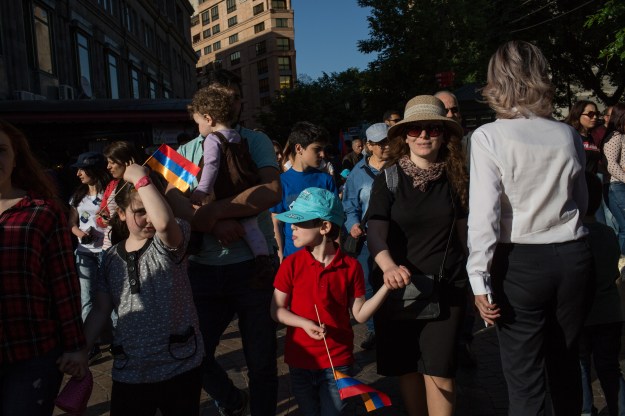
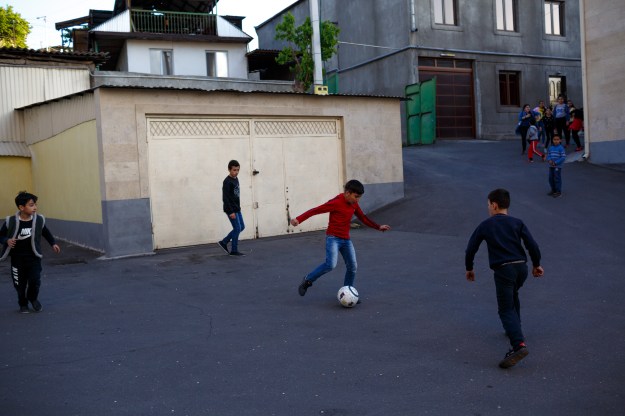
Renwick: What economic issues were people protesting?
Giragosian: Armenia, unfortunately, hemorrhages its most important resource: people. Every year there’s a net exodus. The unemployment rate [about 18 percent] is not only unacceptably high in Armenia, but even the economic growth has not trickled down. We see widening disparities of wealth and income, and most notably—and disturbing—1 out of 3 Armenians now lives in poverty.
Renwick: What was the role of young people in these protests?
Giragosian: Demographics are the driving force behind this new wave of activism. There’s a new generation that came of age in the independent Armenian Republic. Many have studied in the United States or Europe and are coming back to Armenia. They’re not giving up on their country, and while their patience is not without limit, they still have a strong patriotic identity.
What’s interesting, though, is that although they were driven by the youth, the demonstrations bridged generational and urban-rural divides. A number of senior citizens came out to protest with their children. This was a widening movement, and it passed the tipping point very quickly, which helps explain why the former president resigned so quickly and decided not to use force. The reality had shifted dramatically.
One last thing to note—unlike Ukraine, Armenia’s political change was not geopolitical. This wasn’t a battle between Russia and the European Union. This was domestically driven, which gave it much better odds of succeeding.
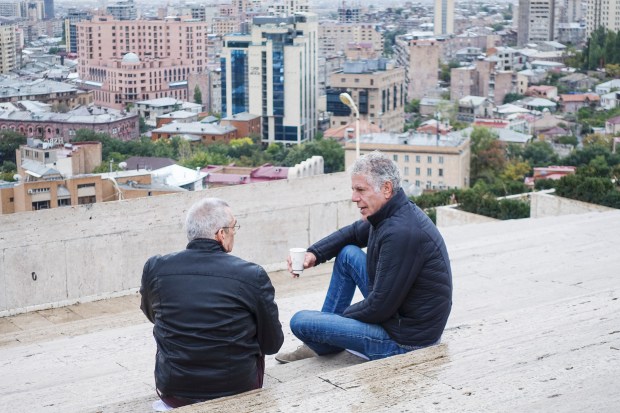
Renwick: What can you tell us about the new prime minister?
Giragosian: Pashinyan was the right person at the right time. He is the rare example—in Armenia or the post-Soviet space—of someone with a combination of personal charisma and political prowess. He understood and gauged the temperature of the country better than anyone else and was able to sustain the protests.
For the ordinary citizen, Nikol Pashinyan is seen as one of them. He’s a former newspaper editor, not very wealthy or very well connected. To a degree, he’s seen as an Obama-like figure, in terms of bringing change and inspiring a populist, popular message.
In 2008, Armenia had a very violent post-election crisis, and Pashinyan was forced into hiding. [Editor’s note: He turned himself in to authorities in 2009 and was imprisoned until a general amnesty in 2011.] He went from being a political prisoner to the prime minister in a 10-year period.
Renwick: So what does all this mean for Armenians?
Giragosian: Armenia has often been the victim of history—in other words, whether it’s the Armenian genocide, pogroms, or colonial rule [under] the Persian Empire, the Turks, or the Russians.
For the first time, there was a sense that the ordinary Armenian has now taken hold of his or her future and escaped the prison of geography or history. The ordinary in citizen is now writing history instead of being a hostage to it.
During the first days of independence from the Soviet Union, the Soviet Union had collapsed. Armenia did nothing except to inherit the opportunity. In other words, none of the post-Soviet states, Armenia included, were prepared or expected their independence. This time, it was not a collapse of an external power but the actions and motivations of the Armenians themselves.
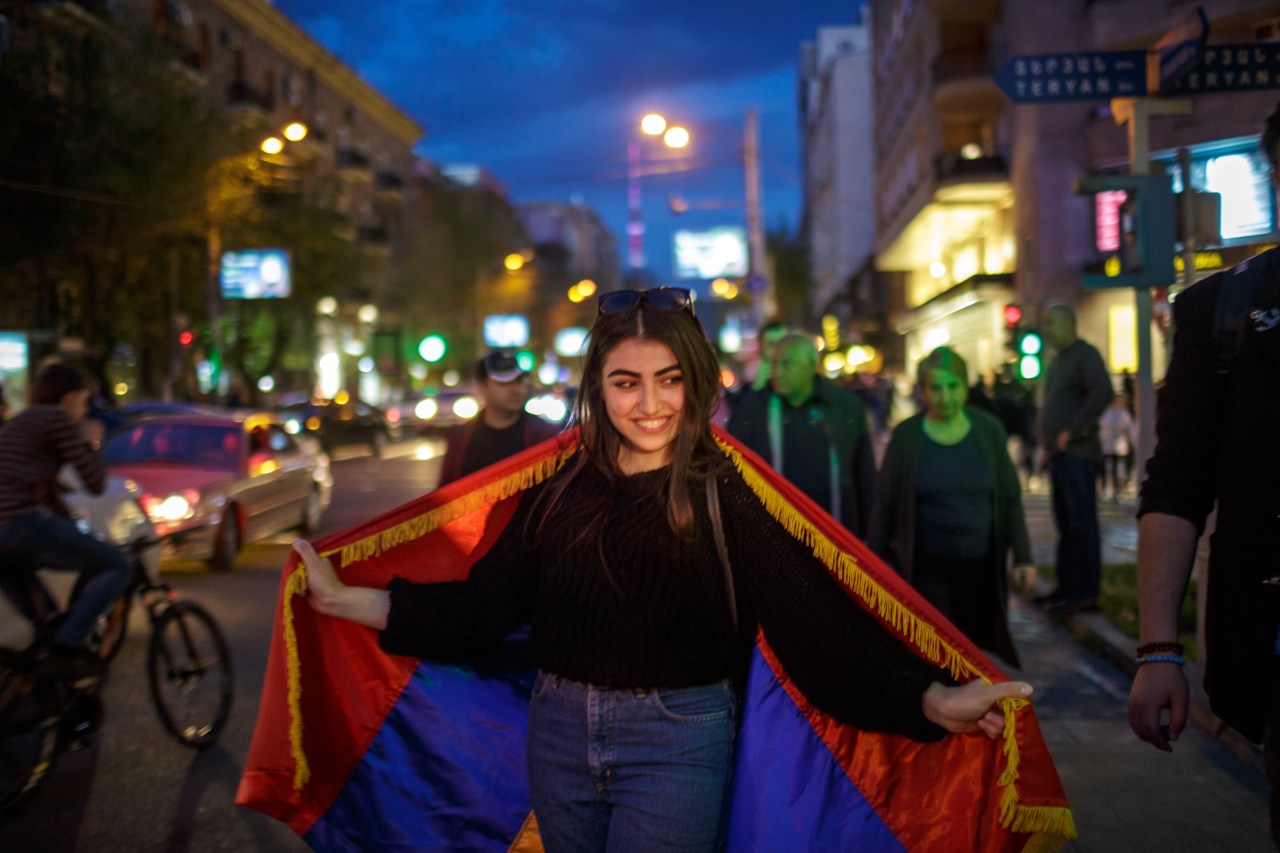
Renwick: What’s the significance of this beyond Armenia?
Giragosian: Armenia usually makes the international news for bad news—disaster, war, victimization, genocide. This is a positive story. It’s a rare success for nonviolent change in a region that is generally dominated by dictators, whether it’s [Russian President Vladimir] Putin or others. The people’s power has triumphed over the entrenched elite, and this may send a message of inspiration to other former Soviet states, even Russia.
Renwick: Pashinyan was sworn in this month. What’s next?
Giragosian: This may have been the easy part. Now the real challenge is going to be governing the country. That will entail filling out the Cabinet—many are newer officials who are younger and less tied to the elite—drafting a legislative program, presenting it to the parliament within a few weeks, and of course, scheduling new parliamentary elections within 60 to 90 days. And then they’ll need to work to ensure that this time it is a more free and fair election than in the past.
It’ll require patience and prudence, and that may be a uniquely daunting challenge for this newly empowered opposition.
This conversation has been edited and condensed.